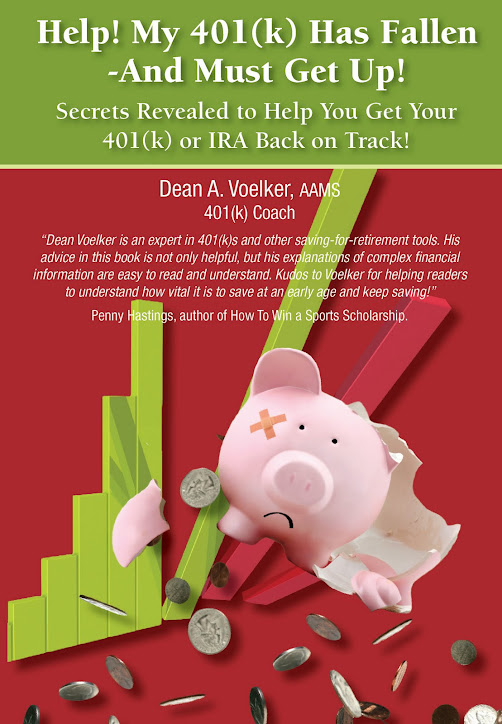Happy 30th Birthday!
Did you know that the 401(k) plan is 30 this year? In 1980, Ted Benna, a Human Resources representative for Johnson & Johnson was asked to put together a new retirement savings plan for the employees there. The plan he devised was based on a new section of the Federal Tax Code, section 401(k).
Section 401(k) allowed corporate employees to direct a portion of their income into a special savings plan for their retirement. There are very similar sections in the code for employees of non-profit organizations - 403(b), and for governement workers - 457(b). Employees were encouraged to do this to create their own savings AND lower their taxable income. For example, if you had a salary of $40,000/year and you were able to put $4000 into your plan, your taxable income automatically drops to $36,000. Savings plans quickly became known as "401(k) plans" from this part of the tax code.
Mr. Benna realized that pensions could not continue effectively. People were living much longer than they did in the 1930's and 1940's. Because people were living longer on average, it created a serious cash flow problem for companies. They simply could not afford to pay retirees for 20 or 30 years. We are also seeing the same problem with Social Security, which is our national 'pension' plan.
What the 401(k) plan did was to shift the responsibility of retirement savings from the employer to the employee. That changed everything!
Once Mr. Benna's new savings plan was in place at Johnson & Johnson, this idea spread like crazy around the country. Companies saw that they could save millions of dollars by eliminating pensions and having workers fund their own retirement. Companies were able to acheive even greater tax savings by making matching contributions on behalf of their employees.
So what does the 401(k) mean to you?
Why do you need one as a corporate worker?
That's simple. No one else (including your employer) will help you to save for your future! For years, financial advisors have thought of retirement income as a three-legged stool - Pension Income, Social Security Income, and income from personal savings.
Well, these days 2 of the 3 legs are broken! If you have no savings, the whole stool is collapsed. For many people I know, the 401(k) at work may be the only real savings they have. Because "life happens", as I have seen on a bumper sticker, it can be very tempting to stop putting money into your 401(k). You may also be tempted because of the doom & gloom we see on the news. Some people have also taken money out which can significantly affect your taxes.
Even after 30 years, the biggest concern with 401(k) plans is that companies don't really do much to inform their employees on how to properly use their 401(k). It's just not enough to have a guy come out twice a year and hand out packets.
Remember, this is your future savings after all! Ask questions. Work out a plan for how much you should save based on your age, income needs, and willingness to take risk.
You need to build a solid 401(k) to give yourself a chance in retirement. Without it, your future vocabulary may include the sentence "Welcome to Walmart."
Those who are unwilling to take risk should listen to what Gen. Douglas Mac Arthur says on the subject. "There is no security on this earth; there is only opportunity."
There is a difference though between taking educated and uneducated risks.
My book, Help! My 401(k) Has Fallen - And Must Get Up! will help with this. In the book, I will share secrets with you about your 401(k) which will let you get more out of the plan. For about the price of a pizza, you can learn about how to get your 401(k) back on its feet. Please contact me at my website, http://www.helpmy401k.us/ for more information and a FREE REPORT, The Five Biggest Problems With 401(k) Plans - And How To Fix Them!
You can follow me on Twitter, Linked In, or Facebook. I also host a radio program, Improving Your Financial Health, on WHME-FM (103.1) in South Bend, IN.
Thursday, June 10, 2010
Happy 30th Birthday!
Subscribe to:
Post Comments (Atom)





No comments:
Post a Comment